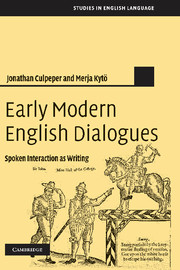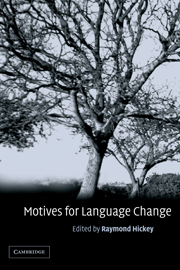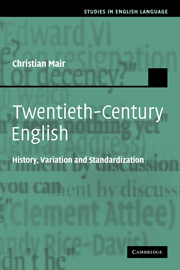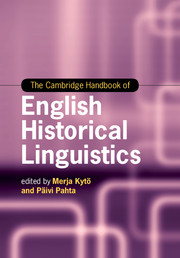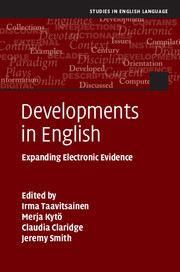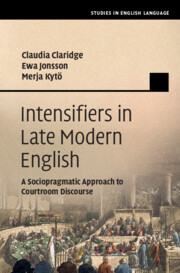Nineteenth-Century English
This volume of Studies in English Language focuses on the nineteenth century, an important period of both stability and change for the English language. Through ten detailed case studies, it highlights the relationships between English, its users, and nineteenth-century society, looking particularly at gender differences and variation across genres. It also discusses major structural aspects of nineteenth-century English, such as nouns, verbs and adjectives, and Germanic vs. Romance vocabulary. Although the nineteenth century is often viewed as a relatively stable period in the development of the language, this volume shows the 1800s to be a time of significant change, some of which continued into the twentieth century. By making comparisons possible with both earlier and later periods, it makes an important contribution to our overall understanding of the history of the English language.
- Highlights the nineteenth century as an important and significant period in the history of the English language
- Relates findings about nineteenth-century English to those found for earlier and later stages of the English language
- Contains ten case studies, based on computerized corpus data
Reviews & endorsements
'This volume is an important and highly welcome contribution to the investigation of nineteenth-century English and to the corpus-based diachronic study of linguistic variation in general. It goes without saying that it provides further evidence for the fact that the nineteenth century is a very attractive period in the history of English which merits the particular attention of historical linguists.' Journal of English Language and Linguistics
Product details
July 2009Paperback
9780521117241
316 pages
229 × 152 × 18 mm
0.47kg
2 b/w illus. 121 tables
Available
Table of Contents
- List of plates
- List of figures
- List of tables
- List of contributors
- Acknowledgements
- Introduction: exploring nineteenth century English - past and present perspectives Merja Kytö, Mats Rydén and Erik Smitterberg
- 1. Modifiers describing women and men in nineteenth-century English Ingegerd Bäcklund
- 2. Words in English Record Office documents of the early 1800s Tony Fairman
- 3. The subjunctive in adverbial clauses in nineteenth-century English Peter Grund and Terry Walker
- 4. The passive in nineteenth-century scientific writing Larisa Oldireva Gustafsson
- 5. Relativizers in nineteenth-century English Christine Johansson
- 6. Anaphoric reference in the nineteenth century: 'that/those + of' constructions Mark Kaunisto
- 7. Adjective comparison in nineteenth-century English Merja Kytö and Suzanne Romaine
- 8. Nonfinite complement clauses in the nineteenth century: the case of 'remember' Christian Mair
- 9. The 'in-ing' construction in British English, 1800–2000 Juhani Rudanko
- 10. Partitive constructions in nineteenth-century English Erik Smitterberg
- Appendix
- References
- Name index
- Subject index.


